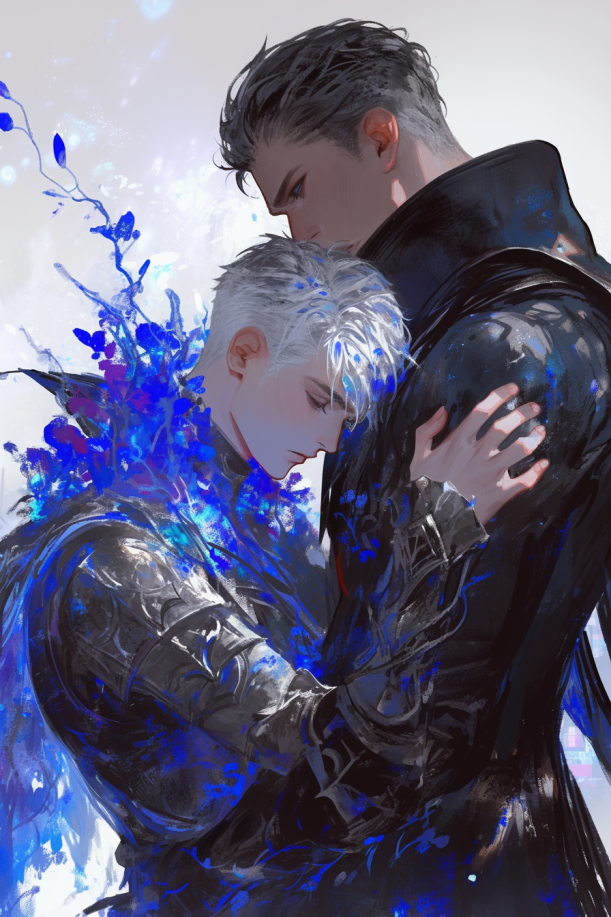Chapter 13
“You’re very well-informed,” The Doctor said. “We’ve discovered that when the human body mutates, certain special segments in the DNA are activated. We call these targets. There are two main categories: animal-type mutation targets and plant-type mutation targets. The improved genetic test now runs both processes simultaneously—one for animal-type targets, one for plant-type. The total time required is one hour.”
Brian Clark: “Congratulations.”
The Doctor let out a short laugh and said, “Colonel, if the time required for genetic testing is greatly reduced and the cost is lowered, will your tribunal go out of business?”
“I look forward to it.”
“You’re really no fun.”
They stopped talking.
Meanwhile, Adam Carter stared at the silvery-white ceiling, beginning to ponder what species he was.
A mushroom.
The Doctor said mutations are divided into animal-type and plant-type.
He thought, first of all, mushrooms aren’t animals.
Secondly, mushrooms don’t seem to be plants either; he didn’t have any leaves.
Adam Carter was confused. He tried hard to classify himself as a plant, but couldn’t find enough evidence.
He spent too long thinking about this question, and before he could come to a conclusion, the blue light faded from around him like the tide receding.
“All done.” The Doctor’s voice sounded, and the mechanical ring automatically released.
Then The Doctor continued, “Colonel, may I ask why you brought him for a genetic test?”
“No.”
The Doctor was clearly taken aback.
He helped Adam Carter up, let him sit on a swivel chair to the side, and patted Adam Carter’s head: “Good, rest here for a while. I’ll go check the blood test results.”
Adam Carter just sat there.
The tribunal colonel sat across from him, still watching him coldly with icy green eyes. It was a young face, sharply defined. From under the brim of his hat, a few strands of black hair hung down over his forehead, pressing against the slanting ends of his brows. The corners of his brows and eyes were coated with a faint, cold light from the room, scraping at him like a knife.
Adam Carter felt chilled under that gaze—mushrooms fear the cold. So he turned the swivel chair at an angle, turning his back to the colonel.
He felt even colder.
A long time later, The Doctor’s footsteps finally sounded again, thawing the room: “The genetic report shows no abnormalities. You may go.”
After a few seconds of silence, Brian Clark said, “Are you one hundred percent sure he’s human?”
The Doctor: “It may disappoint you, but we really didn’t find any targets. Other infected and variants have at least ten or more.”
After saying this, he added, “See, the kid doesn’t even want to talk to you.”
Then the colonel said, “Turn back around.”
Adam Carter silently turned back.
Facing Brian Clark’s gaze, he felt a bit evasive, because he really wasn’t human.
As it turned out, even this little bit of evasiveness seemed to provoke the colonel somehow. An icy voice sounded: “What are you afraid of?”
Adam Carter said nothing. His instinct told him that the more he said in front of this person, the more mistakes he’d make—he might get caught out.
Finally, Brian Clark raised his eyebrows and said, “Aren’t you leaving?”
Adam Carter obediently hopped off the chair and followed him out—this time, he was free, not led by handcuffs.
Halfway down the corridor, Brian Clark suddenly spoke: “The moment I first saw you, I instinctively felt you weren’t human.”
Adam Carter’s heart almost stopped.
It took him a full three seconds to respond: “Then… what about the second look?”
“This is my first time requesting a genetic test.” The colonel reached out and handed the genetic test report to him. “You’d better be.”
Adam Carter could only silently accept his perfectly normal report. For a moment, only their monotonous footsteps echoed in the silvery-white corridor.
Near the exit, there was a turn. They ran into a team head-on. Leading them was a judge in a black uniform. Behind the judge, two heavily armed soldiers were escorting a man, and beside them was a tall, disheveled woman with short hair.
The judge saw Brian Clark and said, “Colonel.”
Brian Clark glanced at the man being escorted. As soon as he looked, the man’s throat convulsed a few times and he shouted, “I’m not infected!”
The judge stopped in place and said to Brian Clark, “Highly suspected infected, but no conclusive evidence. The family is strongly requesting a genetic test.”
Brian Clark gave a faint “Mm,” and the soldiers continued to escort the man forward, brushing past Brian Clark. At that moment—
“Bang!”
Brian Clark holstered his gun and walked out without looking back: “No need.”
The man’s body collapsed forward in an instant, caught by the soldiers. The woman following them screamed and collapsed to the ground.
Adam Carter turned to look at Brian Clark’s expression. His gaze was so indifferent—Adam Carter had never seen such eyes before. He knew Aaron Carter was always gentle, Victor Harris calm and generous, Henry Watson full of greed, Anthony Carter always wary, but Brian Clark was different. There was nothing at all in his eyes.
Adam Carter thought, for a judge, killing might be even more normal than breathing. He wouldn’t have any emotional reaction to it, because he’d long since gotten used to it.
Adam Carter soon followed Brian Clark to the exit of the corridor.
